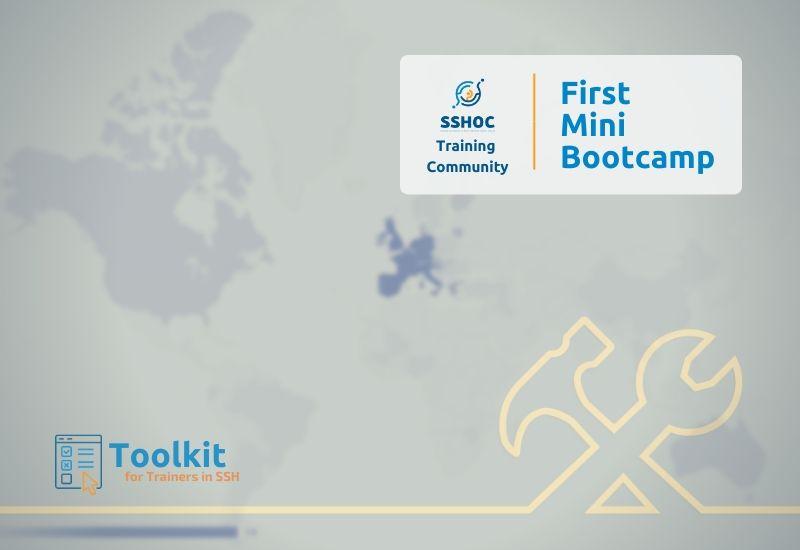
- Social Sciences & Humanities Open Cloud
First SSHOC Training Community Mini Bootcamp

Date:
29 June 2020
On 2 June 2020, Ellen Leenarts and Ricarda Braukmann from DANS, and Tatsiana Yankelevich from LIBER presented the first in what will be a series of SSHOC Training Community mini bootcamps. Their aim was to introduce the Training Toolkit to data professionals and trainers from all over Europe and gauge their reactions.
The Training Toolkit
SSHOC has developed the Training Toolkit as part of its work to provide online educational resources, inspiration, and advice for trainers in the social sciences and humanities. Primarily aimed at helping trainers design and deliver learning materials for data professionals, users and producers, the kit offers a curated and structured compilation of information covering topics ranging from data management to data analysis and programming.
In addition to individual training items, the Toolkit lists the training platforms and other organisations from which these items are sourced. Given that each source typically provide multiple items, only a selection of items from each source is included. The database may be queried by search term and results filtered by category such as intended audience, topic, discipline or format. For each entry, the Toolkit offers a short description and other useful information such as the format of the training material, the license it is offered under or the specific topic it addresses. Direct links to access points are given for all entries.
A great idea and a very useful tool!
The second half of the session was dedicated to an interactive session in which participants discussed the usability and content of the Training Toolkit in its current format. Participants were divided into three parallel discussion groups hosted in breakout rooms, each moderated by one of the organisers.
Overall, the the Toolkit was well received by the Training Community as a great idea and a very useful tool! A great deal of rich and constructive feedback was also provided. Looking into its functionalities, suggestions were made to make the Toolkit more user-friendly, in particular for new users, by including a more informative introduction or homepage. Participants found the interface intuitive in general and offered ideas for improving it, for example by using more familiar webpage terminology such as “home”, instead of “overview”. Another interesting point of discussion was around the use of controlled vocabularies for curated topics and descriptions.
Participants agreed that a level of curation by experts is necessary to make sure that the resources added to the Toolkit are relevant and are well documented. This will help improve its practical value and improve the preception of reliability.
Commented Ricarda Braukmann, “The current version of the Toolkit is just the start. We will use the community feedback we're currently gathering, and liaise with other initiatives working on training activities in the EOSC landscape to update and improve it as a discovery tool for SSH trainers, and later, beyond the life of the SSHOC project, as an integral part of the EOSC training provision.”
The content of the Toolkit continues to be expanded and suggestions for further content are welcome. To offer user or expert feedback, please email the team. Please also consider joining the SSHOC Training Community.
Browse the SSHOC Training Toolkit.
The SSHOC Training Community
SSHOC currently counts 120 training community members, from 40 countries (and 6 continents). The graphics below provide some insights.
Geographical distribution
Domains
Join the SSHOC Training Community to meet fellow trainers, preview SSHOC training materials, share resources, and hear about upcoming workshops and training opportunities.
Alejandra Albuerne from University College London provided this article.


